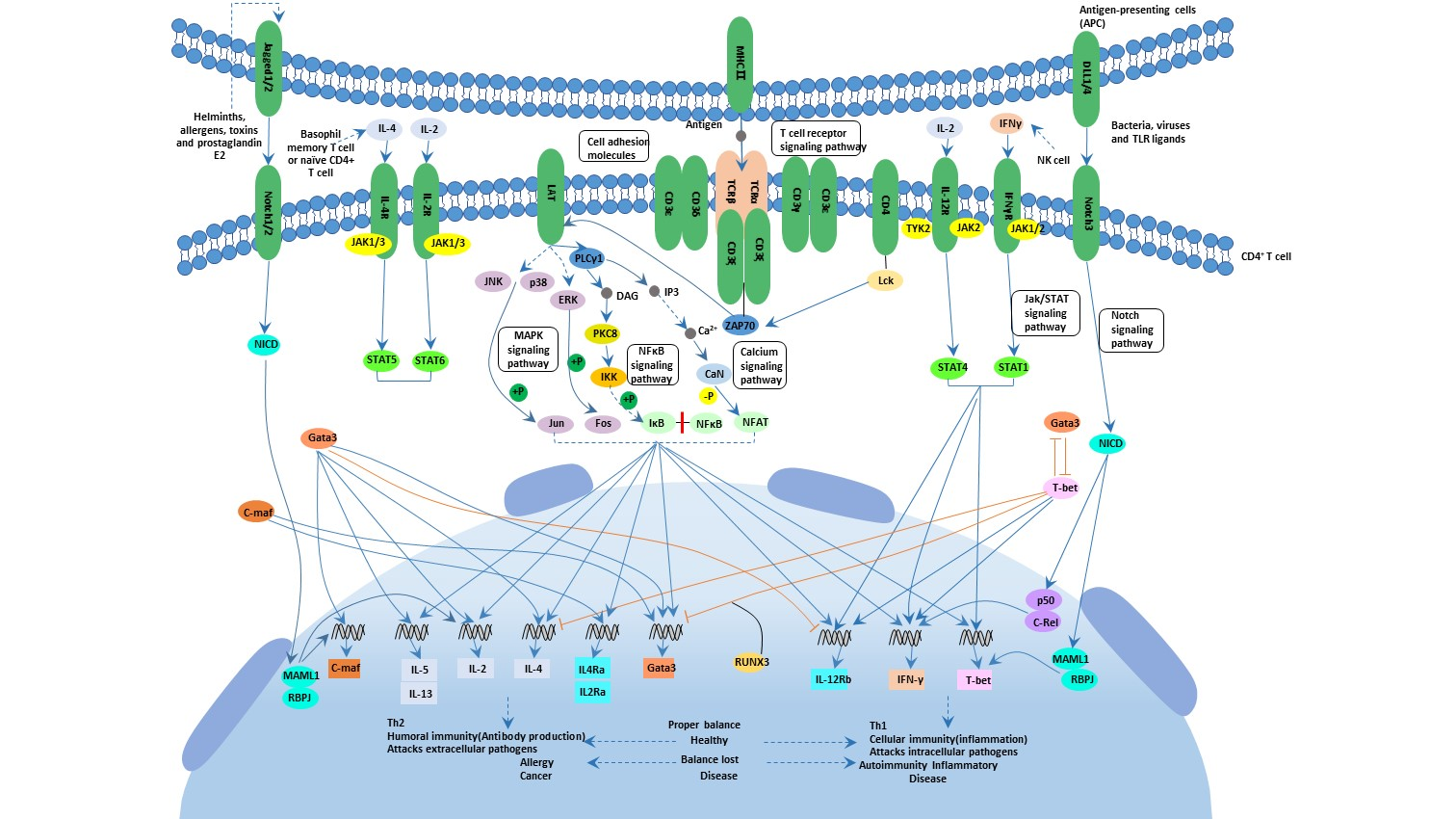
What are Th1 and Th2 Cell Differentiation Signaling Pathway?
The naive CD4+ T cells are differentiated into Th0 cells after antigen stimulation. As the precursor cells of Th1 and Th2, Th0 cells can secrete Th1-like cytokines and Th2-like cytokines.
Differentiation from precursor Th0 cells to Th1 or Th2 cells requires repeated stimulation of antigen, which is influenced by microenvironment, antigen presenting cell (APC) and other factors. The polarization of Th0 cells to Th1 or Th2 cells may be influenced by many factors, such as antigen type and concentration, costimulation molecules, cytokine concentration, immunoactive hormones, transcription factors, type of antigen presenting cells. Among them, cytokines play an important regulatory role. Cytokines IL-4 and IL-13 mainly regulate Th2 cell differentiation, while IFN-alpha, IL-12 and IFN-gamma can regulate Th1 cell differentiation.
In addition, the affinity of MHC-antigen peptide-TCR is also one of the important factors affecting the differentiation of Th1/Th2 cells. The high affinity between antigenic peptide and MHC is beneficial to the differentiation of Th1 cells, and the low affinity is beneficial to the differentiation of Th2 cells.
Significance of Th1 and Th2 Cell Differentiation
Th1 cells secrete IL-2, IFN-γ, TNF-β and other cytokines, participate in cellular immunity and delayed hypersensitivity inflammatory response, and play an important role in autoimmune diseases and host anti-intracellular pathogen infection.
Th2 cells secrete cytokines such as IL-4, IL-5, IL-6, IL-9, IL-10 and IL-13. It is mainly involved in humoral immune response, allergy and infectious diseases. It also plays an important role in antagonizing extracellular pathogens (such as bacteria and parasites), B-cell proliferation and differentiation and asthma.
The differentiation of Thl/Th2 cells has an extremely important influence on the normal operation of the body. Once the balance of Thl/Th2 cells is shifted, diseases will occur. Overexpression of Th1 can lead to autoimmune diseases such as rheumatoid arthritis and multiple sclerosis. Overexpression of Th2 can lead to inappropriate immune responses, leading to diseases such as allergies and asthma.
You can click the link below to view more details about Th1 and Th2 cell differentiation: https://www.cusabio.com/c-20840.html.





